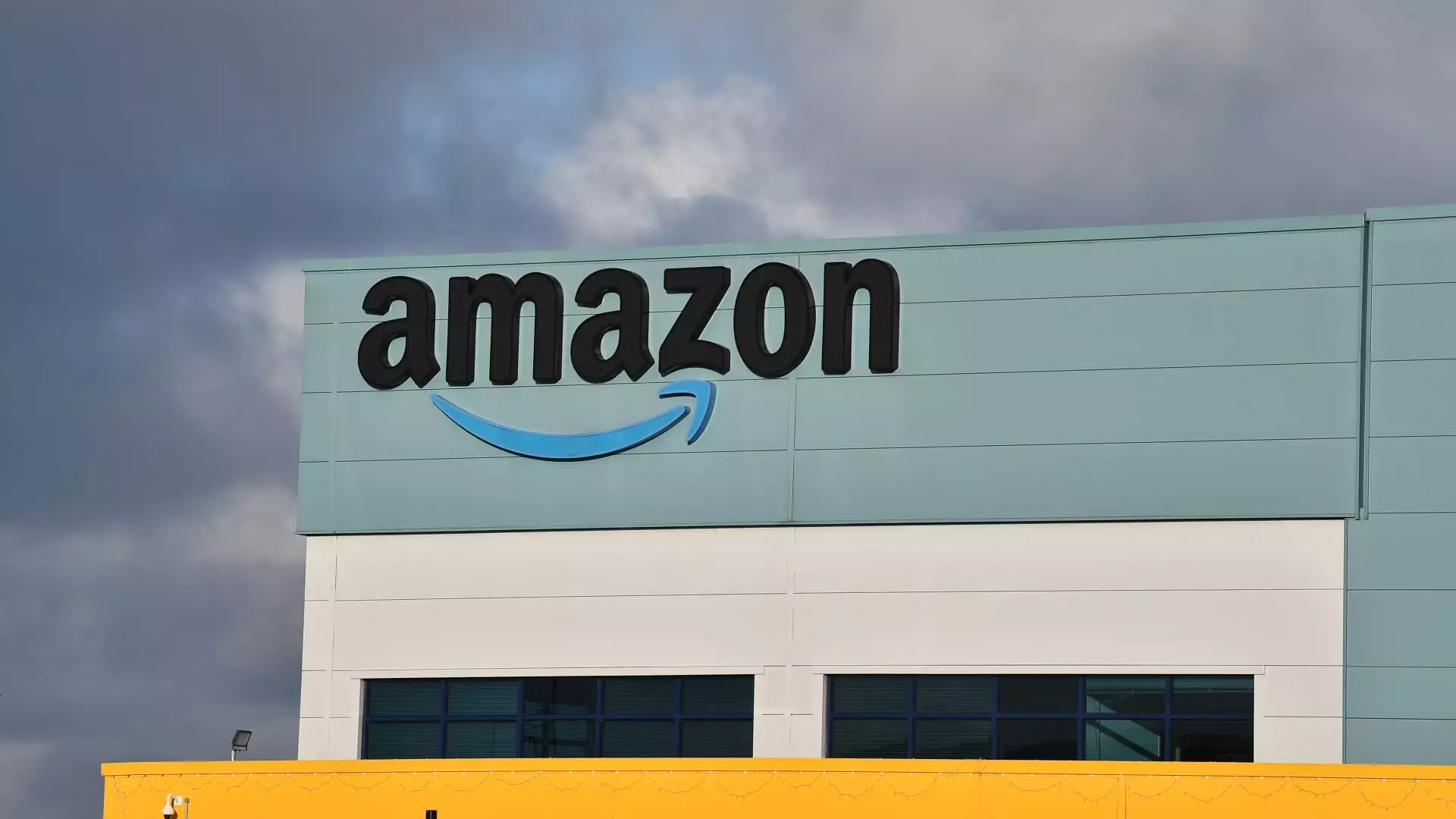In a striking move that underscores its commitment to the UK economy, Amazon has announced a staggering investment of £40 billion ($54 billion) over the next three years. This ambitious plan involves the establishment of four new fulfillment centers—massive warehouses engineered for order processing—and enhancements to existing operational facilities throughout the country. This major financial influx reveals Amazon’s strategic intent to not only consolidate its presence in the UK but also to expand its capabilities in an increasingly competitive market.
The investment announcement has arisen amid challenging economic conditions for the UK, where a 0.3% contraction in Gross Domestic Product (GDP) was recorded in April. This downturn coincided with a complicated landscape of trade tariffs imposed by the United States and domestic tax shifts. In what can be described as a counterbalancing act, UK Prime Minister Keir Starmer heralded the investment as both a lifeline for the beleaguered economy and an indicator of the government’s concerted growth plan. The prospect of creating thousands of jobs can be interpreted not only as a boost for local employment rates but also as a critical reinforcement for community resilience.
The Role of Government and Strategic Partnerships
The British government’s excitement over Amazon’s plan is palpable, especially considering its recent drive to attract major technology enterprises. This proactive approach seeks to reclaim economic momentum and enhance productivity, aligning closely with the tech sector’s potential to innovate and drive growth. By positioning itself as a willing and capable partner for leading global brands, the government is making a bold statement about its expectations for the post-pandemic economy.
However, this partnership with big tech also invites scrutiny. While the government celebrates the influx of investments and the jobs created, it must also address the concerns raised by domestic entrepreneurs. Critics argue that increased taxes and regulatory burdens can stifle the growth of local startups, which are essential for diversification and innovation. Much like a double-edged sword, the relationship between government policy and tech investment is fraught with challenges that must be navigated carefully.
Ambitious Plans for Job Creation
Among Amazon’s numerous initiatives, the announcement of 2,000 new roles at a new fulfillment center in Hull and an additional 2,000 in Northampton stands out as a clear commitment to bolstering local employment. The significance of these jobs cannot be overstated: they not only provide opportunities in areas that may be struggling but also reflect a concerted effort to attract a diverse workforce. Additionally, the firm’s plans to enhance the transportation infrastructure across the UK and redevelop notable sites, such as the Bray Film Studios in Berkshire, signify an all-encompassing approach to economic rejuvenation.
In the context of Amazon’s continuous expansion in the UK, the establishment of two new corporate headquarters buildings in East London further indicates the retailer’s long-term vision. This move goes beyond mere growth; it exemplifies a holistic commitment to integrating into the fabric of British commerce and culture. With these developments, Amazon is not merely in search of profits; it aims to embed itself as a foundational pillar of the UK’s economic landscape.
The Competitive Landscape and Future Prospects
While Amazon’s robust investment is laudable, it is important to recognize that it is part of a larger trend within the technology sector. Recent announcements from companies like TikTok, which plans to set up a large office in London, illustrate a growing confidence in the UK’s market potential. These investments are reaffirming the country’s status as a significant player in the global tech arena, attracting notable enterprises that are eager to tap into its talent pool and consumer base.
The industry is evidently reliant on continuous innovation and the effective collaboration of both governmental bodies and large corporations. However, the dialogue must also include the voices of smaller businesses and entrepreneurs who are essential to a balanced and dynamic economy. The criticisms surrounding tax hikes serve as a reminder that fostering an inclusive growth environment is crucial if the UK is to maintain its competitive edge amidst such transformative investments.
Therefore, while Amazon’s monumental investment may indeed pave the way for significant economic benefits, it is equally imperative for the broader business ecosystem to thrive in parallel. This will ensure that the future of the UK economy isn’t solely anchored by its largest players but is robustly supported by a diverse tapestry of innovation and enterprise.

